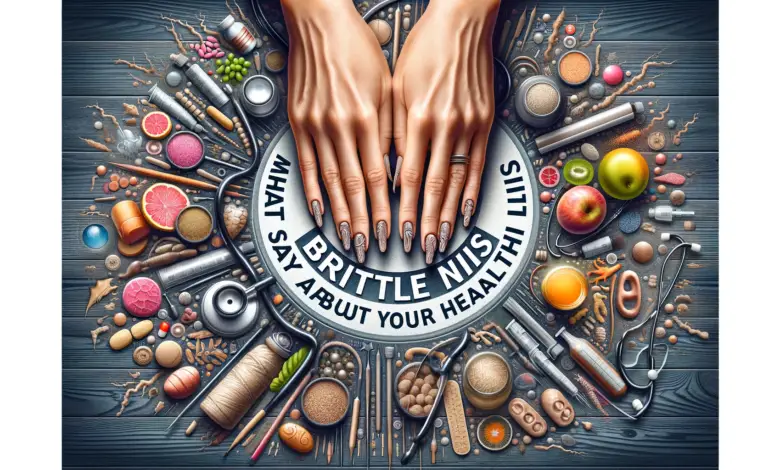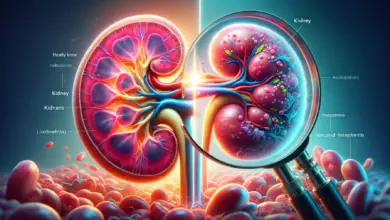What Brittle Nails Say About Your Health

Have you ever looked down at your nails and noticed that they are brittle and prone to breakage? While it may seem like a minor annoyance, brittle nails can actually be a sign of underlying health issues. In this article, we will explore what your nails are trying to tell you about your overall well-being.
1. Nutritional Deficiencies
Brittle nails can be a sign of nutritional deficiencies, particularly a lack of vitamins and minerals. If your diet is lacking in essential nutrients such as biotin, iron, zinc, and vitamin C, your nails may become weak and brittle. To improve the health of your nails, make sure you’re eating a balanced diet that includes plenty of fruits, vegetables, and lean proteins.
Furthermore, adding supplements to your routine, such as biotin or omega-3 fatty acids, can also help strengthen your nails from within.
Remember, healthy nails start from the inside out!
2. Dehydration
Dehydration can wreak havoc on your nails, leaving them dry and brittle. When your body lacks proper hydration, it affects the moisture levels in your nails, making them more prone to breakage. To combat this, make sure you’re drinking enough water throughout the day to keep your body and nails adequately hydrated.
Additionally, applying a moisturizing nail and cuticle oil can help replenish lost moisture and improve the overall health of your nails.
3. Hormonal Imbalances
Hormonal imbalances, such as those experienced during pregnancy or menopause, can have a direct impact on the health of your nails. Fluctuating hormone levels can lead to changes in nail texture, making them brittle and more susceptible to damage.
If you suspect hormonal imbalances may be the cause of your brittle nails, it’s important to consult with a healthcare professional who can provide guidance and recommend appropriate treatments or lifestyle changes.
4. Thyroid Disorders
The thyroid gland plays a crucial role in regulating various bodily functions, including nail health. Both an underactive thyroid (hypothyroidism) and an overactive thyroid (hyperthyroidism) can result in brittle nails.
If you suspect a thyroid disorder may be the culprit behind your brittle nails, it’s essential to seek medical advice. A simple blood test can determine if your thyroid is functioning optimally, and appropriate treatment can be prescribed if necessary.
5. Excessive Use of Harsh Chemicals
Constant exposure to harsh chemicals, such as cleaning agents and nail polish removers, can strip your nails of their natural oils and weaken their structure. If you frequently use these substances without proper protection, your nails may become brittle and prone to breakage.
To protect your nails, consider wearing gloves when cleaning or using chemical products. Additionally, opt for nail polishes and removers that are free from harsh chemicals, as they are less likely to cause damage.
6. Medical Conditions
Brittle nails can sometimes be a symptom of an underlying medical condition. Conditions such as psoriasis, eczema, and anemia can all contribute to nail brittleness. If you suspect an underlying medical condition may be the cause, it’s important to consult with a healthcare professional for a proper diagnosis and treatment plan.
7. Aging
As we age, our nails naturally become more brittle. The production of natural oils and proteins in the nails slows down, leading to increased dryness and fragility. While aging is inevitable, there are steps you can take to minimize the effects on your nails.
Regularly moisturizing your nails and cuticles, as well as avoiding excessive exposure to water, can help maintain their strength and prevent excessive brittleness.
Conclusion
Next time you notice your nails are brittle, don’t just brush it off as a cosmetic concern. Your nails can provide valuable insights into your overall health. From nutritional deficiencies to hormonal imbalances and medical conditions, there are various factors that can contribute to nail brittleness.
By paying attention to your nails and addressing any underlying health issues, you can not only improve the appearance of your nails but also safeguard your overall well-being.




